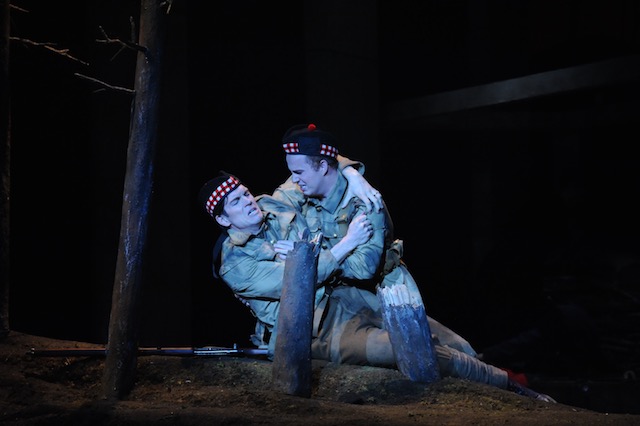
This weekend, the Arizona Opera will welcome to its stage “Silent Night”– a Pulitzer Prize-winning performance that tells the tale of the Christmas Eve cease-fire that was negotiated across the battlegrounds of World War I in 1914. During this evening, a reported 100,000 French, British and German troops laid down their weapons in an effort to acknowledge each soldier’s humanity. The timeless tale is a thrilling and beautiful reminder of the power in finding one another’s humanity.
AZ Foothills had the opportunity to chat with Silent Night’s Composer, Kevin Puts, and Librettist, Mark Campbell, ahead of the opera’s debut in Arizona. The duo discussed the process of creating a Pulitzer Prize-winning production and what it means to have their heartwarming opera make its way to the Valley.
AFM: Kevin, when exactly did you start writing and composing the music for “Silent Night”?
KP: The way that Mark likes to work is he likes to complete the part that’s called the libretto, just first and before the music is written. So, he creates the structure of the opera through the libretto, which is kind of like a play or a screenplay. And then, I wrote the music. So, he gave it to me in maybe 2009 or so. After he gave me the first act, I started working on the composition for that. Once he heard the music I was writing, that led him to better understand what he should do with act two, just based off of what I might do musically. So, it’s a collaboration definitely.
AFM: And Mark, when did you really start developing the idea for “Silent Night”?
MC: Well, first of all, the opera was the idea of Dale Johnson, who was the artistic director of the Minnesota Opera. Dale, after approaching Kevin, then approached me and asked if I would be interested in writing the libretto. I listened to Kevin’s music and watched the movie, and said absolutely I’d love to. As far as the process goes, I wrote the libretto – so, I wrote the first act and then gave it to Kevin. And he started setting it. Then, I wrote the second act and he started setting that. Minnesota Opera does this terrific process of giving the composer and the librettist three workshops, so that we can hear our work with the piano, and see how the pace is or if humorous lines are landing. The whole thing was really a tremendous process.
